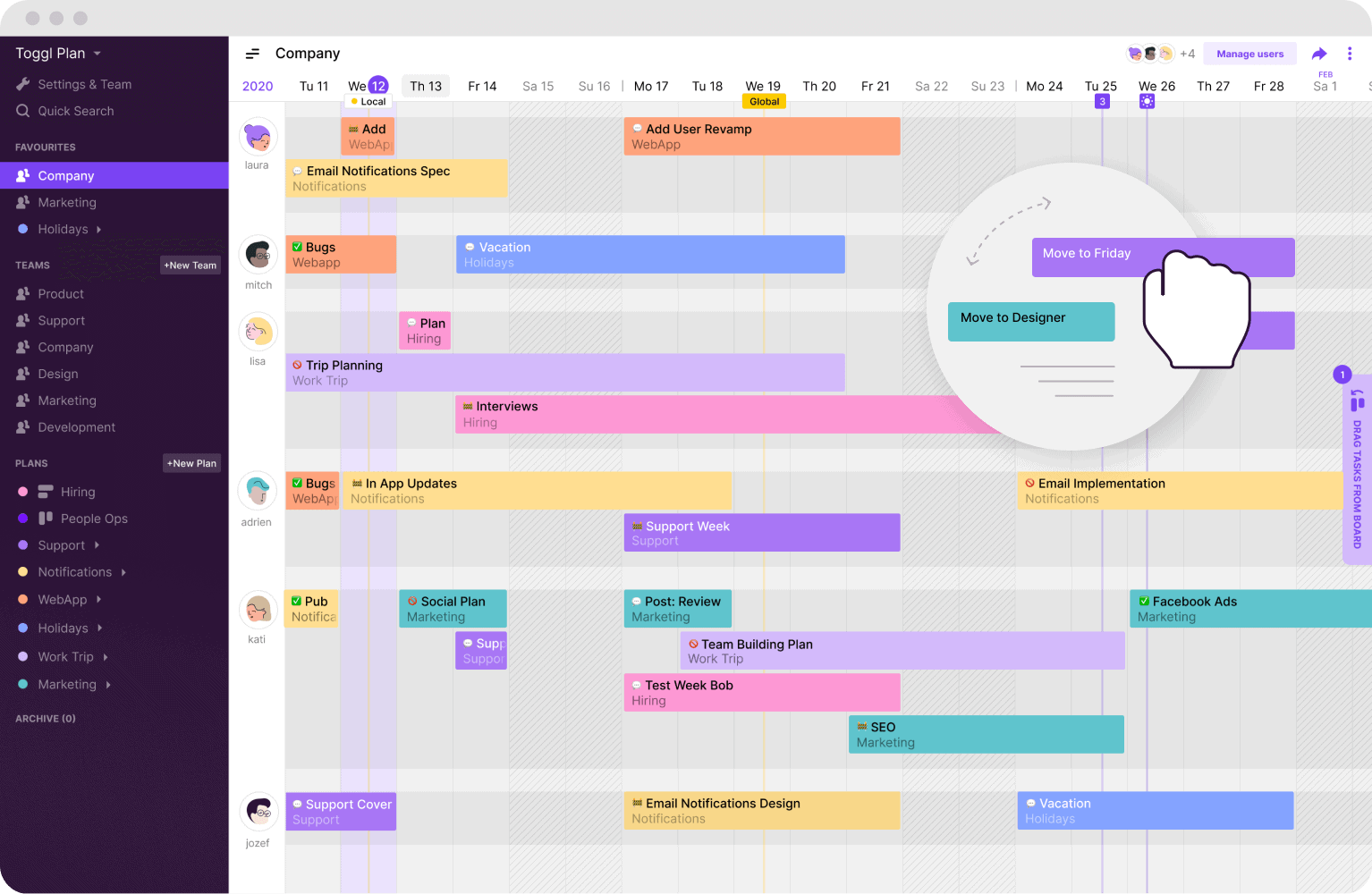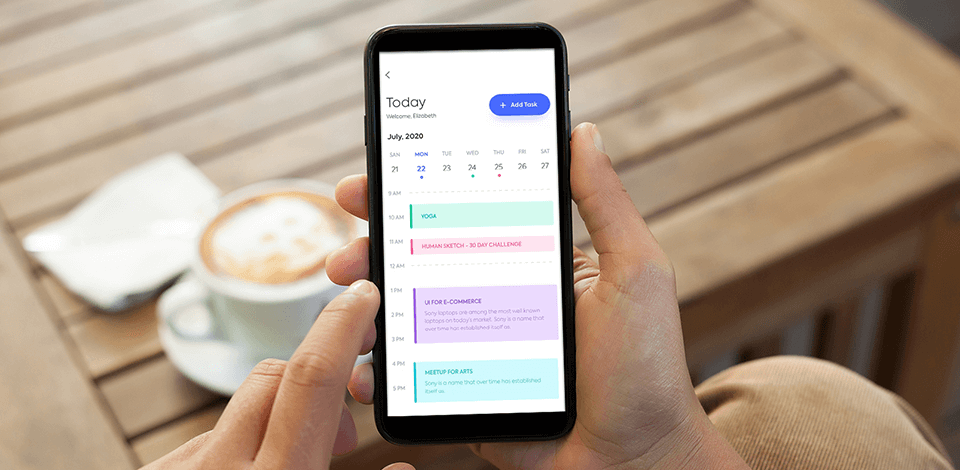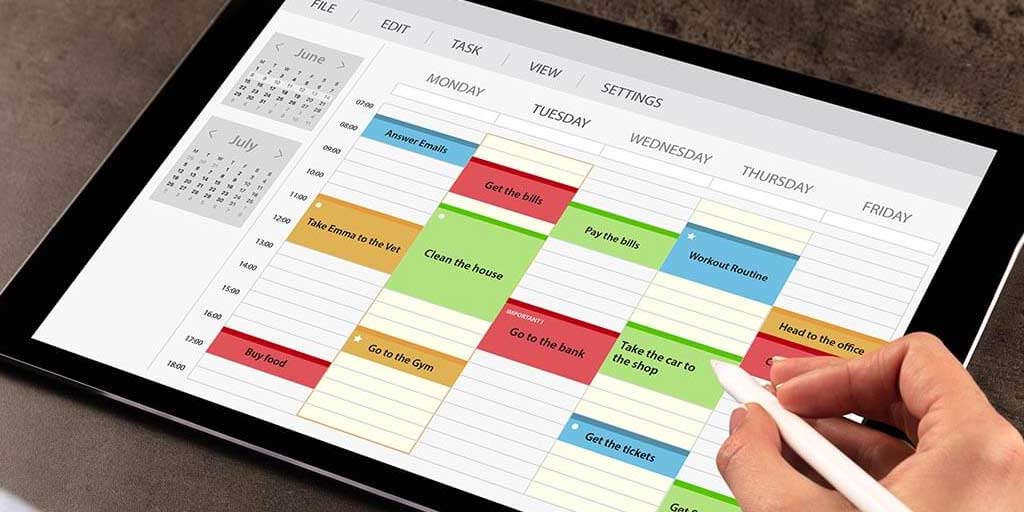Daily planner apps have become indispensable tools for managing our busy lives. From task management to calendar integration, these apps offer a range of features to help us stay organized, productive, and on top of our goals.
In this comprehensive guide, we’ll explore the benefits of using daily planner apps, discuss their key features and functionality, and provide guidance on choosing the right app for your needs. We’ll also delve into emerging trends shaping the future of daily planner apps.
Daily Planner App Market Overview
The daily planner app market is a rapidly growing segment of the mobile app industry. In 2021, the market was valued at $1.5 billion and is projected to reach $3.2 billion by 2026, exhibiting a CAGR of 14.5% during the forecast period.
This growth is attributed to the increasing adoption of smartphones and tablets, the rising popularity of remote work, and the growing need for personal organization and productivity tools.
There are a wide variety of daily planner apps available, each with its own unique features and target audience. Some of the most popular types of daily planner apps include:
- Calendar apps:These apps allow users to track appointments, events, and deadlines. They often integrate with other productivity tools, such as email and task managers.
- To-do list apps:These apps allow users to create and manage to-do lists. They often include features such as task prioritization, reminders, and collaboration.
- Habit tracker apps:These apps allow users to track their progress towards achieving their goals. They often include features such as goal setting, progress tracking, and reminders.
- Journaling apps:These apps allow users to record their thoughts, feelings, and experiences. They often include features such as privacy protection, password protection, and synchronization across devices.
The major players in the daily planner app market include Google, Apple, Microsoft, and Evernote. These companies offer a wide range of daily planner apps that cater to the needs of different users. Google Calendar and Apple Calendar are two of the most popular calendar apps, while Microsoft To-Do and Evernote are two of the most popular to-do list apps.
Features and Functionality of Daily Planner Apps

Daily planner apps offer a wide range of features and functionality to help users manage their time and tasks effectively. These core features include:
- Task management:Create, organize, and prioritize tasks using to-do lists, checklists, and project boards.
- Calendar integration:Sync events and appointments from external calendars like Google Calendar or Apple Calendar.
- Note-taking:Capture ideas, notes, and meeting minutes in a dedicated space.
- Reminders:Set notifications and alerts to stay on top of important tasks and events.
Beyond these core features, daily planner apps differentiate themselves with innovative functionality:
- Collaboration tools:Share tasks, calendars, and notes with colleagues or family members.
- Habit tracking:Monitor progress towards personal or professional goals.
- Time tracking:Log time spent on tasks to improve productivity.
- Customizable widgets:Add widgets to the home screen for quick access to tasks and appointments.
User experience and interface design are crucial in daily planner apps. An intuitive and user-friendly interface makes it easy for users to navigate the app and manage their time effectively. Customization options, such as themes and color schemes, allow users to personalize the app to their preferences.
Benefits of Using Daily Planner Apps

Daily planner apps offer numerous benefits that can enhance productivity, improve time management, and reduce stress. These apps provide a structured approach to organizing tasks, appointments, and goals, helping users stay on track and achieve their objectives.
One significant benefit of daily planner apps is increased productivity. By providing a central location to manage all tasks and appointments, these apps eliminate the need for multiple to-do lists and calendars, reducing the risk of forgetting or overlooking important items.
The ability to set reminders and prioritize tasks ensures that users focus on the most critical activities first, maximizing their efficiency and output.
Improved Time Management
Daily planner apps also significantly improve time management. They allow users to visualize their schedules and allocate time effectively. By breaking down large projects into smaller, manageable tasks, these apps make it easier to track progress and stay on schedule.
Additionally, the ability to set deadlines and receive notifications helps users avoid procrastination and ensures timely completion of tasks.
Reduced Stress
Using daily planner apps can also reduce stress levels. By providing a clear overview of tasks and appointments, these apps eliminate the feeling of being overwhelmed or disorganized. The ability to delegate tasks and collaborate with others further reduces stress by distributing the workload and fostering teamwork.
Potential Drawbacks
Despite their numerous benefits, daily planner apps may have some potential drawbacks. One limitation is the need for consistent use. To fully benefit from these apps, users must regularly update and maintain their schedules, which can be time-consuming. Additionally, some users may find the constant notifications and reminders to be distracting or overwhelming.
Choosing the Right Daily Planner App: Daily Planner Apps
Choosing the right daily planner app can be overwhelming with the vast number of options available. To select the ideal app for your needs, consider the following factors:
Features and Functionality
Determine the specific features you require, such as task management, event scheduling, note-taking, habit tracking, and integration with other tools. Consider whether you need a basic planner or one with advanced features like project management or collaboration.
User Interface
The user interface should be intuitive and easy to navigate. Consider the app’s design, layout, and accessibility. Ensure that you can quickly and easily add, edit, and view your tasks and events.
Cost
Daily planner apps range in cost from free to premium subscriptions. Determine your budget and consider the value you receive for the price. Free apps may offer limited features, while paid apps typically provide more functionality and customization options.
Comparison Table, Daily planner apps
| Feature | App A | App B | App C |
|---|---|---|---|
| Task Management | Basic | Advanced | Extensive |
| Event Scheduling | Limited | Robust | Highly Customizable |
| Note-Taking | Yes | Yes | Yes |
| Habit Tracking | No | Yes | Yes |
| Cost | Free | $4.99/month | $9.99/month |
By carefully considering these factors, you can choose the daily planner app that best meets your individual needs and helps you stay organized and productive.
Emerging Trends in Daily Planner Apps

The daily planner app market is constantly evolving, with new trends emerging all the time. Some of the most notable trends include:
- Integration of artificial intelligence (AI):AI is being used to power a variety of features in daily planner apps, such as:
- Smart scheduling: AI can help users schedule appointments and tasks more efficiently by taking into account their preferences, availability, and other factors.
- Personalized recommendations: AI can provide users with personalized recommendations for tasks, appointments, and other activities based on their past behavior and preferences.
- Automated task management: AI can automate tasks such as creating reminders, sending emails, and updating calendars.
- Gamification:Gamification is being used to make daily planner apps more engaging and motivating. This can involve features such as:
- Points and rewards: Users can earn points or rewards for completing tasks and achieving goals.
- Leaderboards: Users can compete with friends or other users to see who can complete the most tasks or achieve the most goals.
- Challenges: Users can participate in challenges to earn rewards or improve their productivity.
- Wearable technology:Daily planner apps are increasingly being integrated with wearable technology, such as smartwatches and fitness trackers. This allows users to track their activity, set goals, and receive reminders right from their wrist.
These trends are shaping the future of daily planner apps and making them more useful and efficient than ever before.
Examples of Daily Planner Apps That Are Embracing Emerging Trends
Several daily planner apps are embracing emerging trends and innovating in the market. Some examples include:
- Todoist:Todoist is a popular daily planner app that uses AI to help users schedule appointments and tasks more efficiently. It also offers a variety of gamification features, such as points and rewards.
- Habitica:Habitica is a daily planner app that uses gamification to help users stay motivated and productive. It allows users to create quests, track their progress, and earn rewards for completing tasks.
- Google Calendar:Google Calendar is a popular daily planner app that integrates with a variety of wearable technology devices. This allows users to track their appointments and events right from their wrist.
As these trends continue to evolve, we can expect to see even more innovative and useful daily planner apps emerge in the future.
Final Thoughts

Whether you’re a student, a professional, or simply someone looking to get more organized, a daily planner app can be a game-changer. By embracing the power of these tools, you can unlock your potential, achieve your goals, and live a more productive and fulfilling life.
Detailed FAQs
What are the key features of daily planner apps?
Daily planner apps typically offer features such as task management, calendar integration, note-taking, reminders, and synchronization across multiple devices.
How can daily planner apps help me be more productive?
Daily planner apps can help you stay organized, prioritize tasks, track your progress, and reduce stress by providing a clear overview of your schedule and commitments.
What are some of the emerging trends in daily planner apps?
Emerging trends in daily planner apps include the integration of artificial intelligence, gamification, and wearable technology, which are enhancing the user experience and offering new ways to track and manage tasks.
